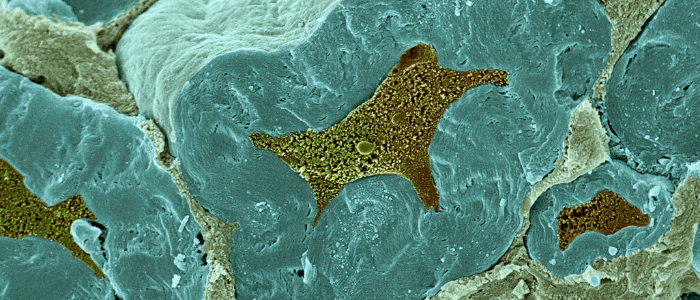Ursolic acid: an a-peeling approach for the treatment of multiple sclerosis?

Ursolic acid – a compound found in the peels of fruits such as apples and prunes – could prevent further damage to neurons in animal models of multiple sclerosis (MS). The compound has also been reported to spur neuronal repair by helping to rebuild the protective sheaths surrounding neurons, potentially reversing the damage. The preliminary results, which have been published in the Proceedings of the National Academy of Sciences, used a purified form of ursolic acid in mice that had established MS disease. Although many studies have investigated mice in the acute phase of the disease, the researchers noted...